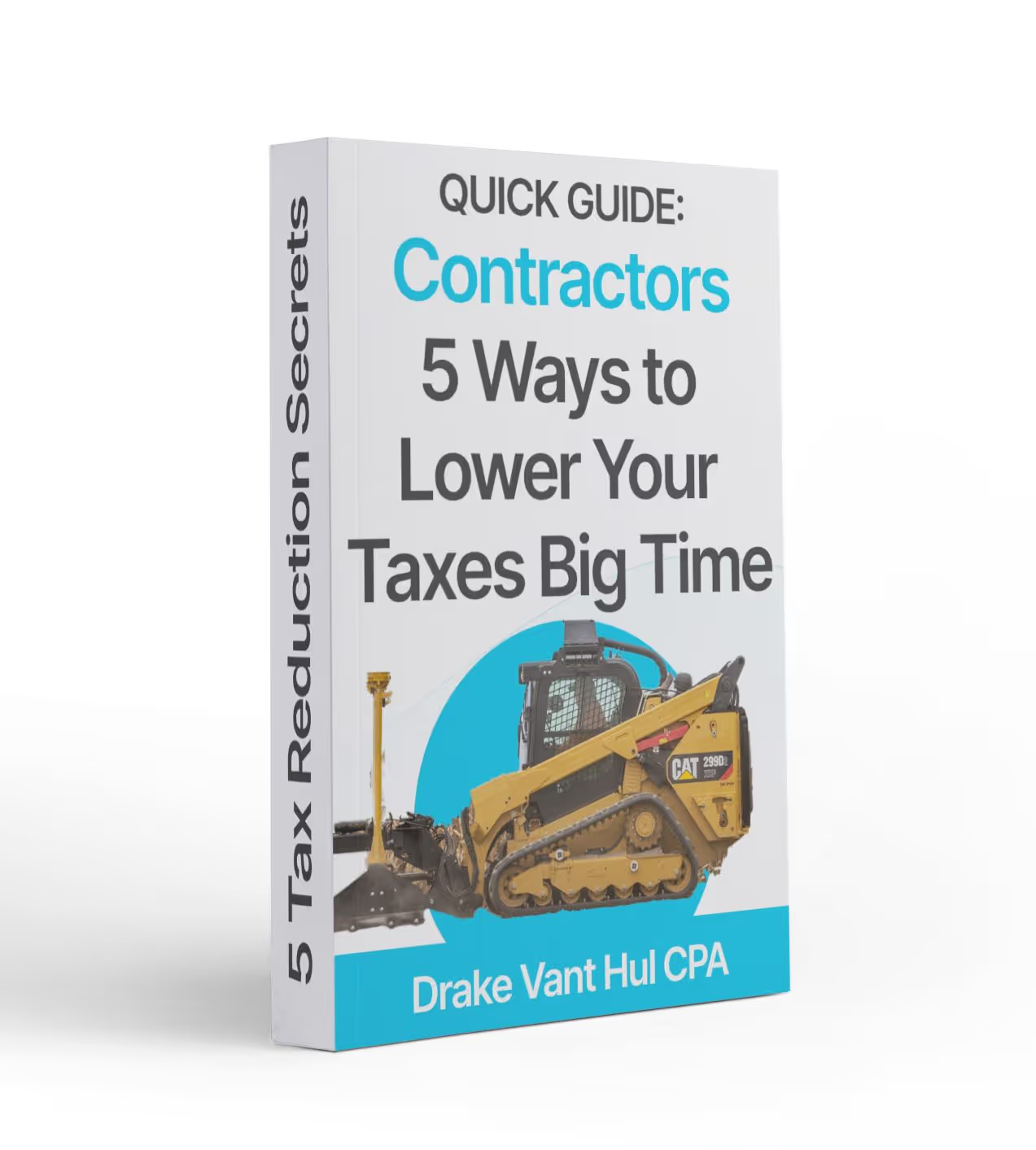In the construction industry, managing finances is just as crucial as managing projects on-site. Whether you're a general contractor, custom home builder, or specialized tradesman, having the right financial foundation can make the difference between thriving and merely surviving. The key to success lies in asking your accountant the right questions.
Why Construction Businesses Need Specialized Financial Guidance
Construction businesses face unique financial challenges that require specialized expertise. Unlike other industries, contractors deal with job costing, project-based revenue recognition, seasonal cash flow variations, and industry-specific tax deductions. Working with firms like Performance Financial LLC or Asnani CPA that understand these nuances can transform your business's financial health.
Essential Job Costing and Profitability Questions
1. "How do we implement accurate job costing for each project?"
This is perhaps the most critical question for any construction business. Accurate job costing is the foundation of profitability analysis and competitive bidding. Your accountant should help you set up systems that track direct costs, indirect costs, and overhead allocation for each project.
Companies like Country Creek Builders and Bettencourt Construction understand the importance of knowing true project costs. Ask your accountant:
- What job costing software integrates best with our current systems?
- How should we allocate overhead costs across projects?
- What key performance indicators should we track per job?
2. "What's the true profitability of each project type?"
Different types of construction work yield different profit margins. Whether you're doing commercial concrete work like Cascade Concrete Coatings, masonry work like Fredrickson Masonry, or custom home building like Homes by Moderno, understanding which services are most profitable guides your business development strategy.
3. "How can we improve our cash flow management?"
Construction businesses often struggle with cash flow due to long project cycles and payment delays. Your accountant should provide strategies for managing cash flow, including progress billing optimization and payment term negotiations.
Tax Planning and Deduction Questions
4. "Are we maximizing all available construction-specific tax deductions?"
Construction businesses qualify for numerous specialized deductions that general accountants might miss. Specialized firms like CBW Accountant and Whyte CPA understand deductions specific to contractors, including:
- Equipment depreciation and Section 179 deductions
- Vehicle and equipment usage deductions
- Home office deductions for administrative work
- Travel expenses between job sites
- Bonding and insurance costs
5. "Should we elect S-Corp status for tax optimization?"
Many construction businesses can significantly reduce their tax burden through strategic entity selection. Ask your accountant to analyze whether S-Corp election makes sense for your situation. Companies working with specialists like Passageway Financial or Freedom From Accounting often see substantial tax savings through proper entity structuring.
6. "What proactive tax planning strategies should we implement?"
Tax planning should happen year-round, not just at filing time. Your accountant should provide quarterly reviews and proactive strategies. This includes timing of equipment purchases, retirement plan contributions, and income shifting strategies.
Business Structure and Growth Questions
7. "How should we structure our business for optimal tax efficiency?"
Whether you're a landscaping contractor like Minnesota Landscapes, a pool builder like Plan Pools, or a painting contractor like Legacy Painting 757, the right business structure impacts your tax liability, personal asset protection, and growth potential.
8. "What financial controls should we implement as we grow?"
Growing construction businesses need robust financial controls. Your accountant should help implement systems for expense management, project approval processes, and financial reporting that scale with your business.
Technology and Systems Questions
9. "What accounting software is best for our construction business?"
Construction businesses need accounting software that handles job costing, progress billing, and equipment tracking. Your accountant should recommend solutions that integrate with your existing project management tools and provide real-time financial visibility.
10. "How can we automate our bookkeeping processes?"
Manual bookkeeping processes are error-prone and time-intensive. Ask about automation opportunities for invoice processing, expense categorization, and financial reporting. Firms like CBC Twin Cities and Preferred 1 MN often help clients streamline these processes.
Specialized Industry Questions
11. "Do you understand the unique aspects of our construction specialty?"
Different construction specialties have unique financial considerations. Whether you're working in fitness facility construction and need guidance from specialists like Fitness Taxes, or you're in the duplex development business and work with experts like The Duplex Doctors, ensure your accountant understands your specific industry challenges.
12. "How should we handle bonding and insurance from an accounting perspective?"
Construction businesses often require surety bonds and specialized insurance. Your accountant should understand how to properly account for these costs and optimize their tax treatment.
Performance Monitoring Questions
13. "What key financial metrics should we monitor monthly?"
Construction businesses should track specific metrics beyond basic profit and loss. Ask your accountant about monitoring gross margin by project type, work-in-progress schedules, and cash conversion cycles.
14. "How do we benchmark our performance against industry standards?"
Understanding how your business performs compared to industry benchmarks helps identify improvement opportunities. Your accountant should provide comparative analysis and identify areas where you're excelling or lagging.
Compliance and Risk Management Questions
15. "Are we properly handling payroll taxes for our workers?"
Construction businesses often use a mix of employees and subcontractors, each with different tax implications. Ensure your accountant understands proper worker classification and handles all required payroll tax obligations.
16. "What are our audit risks and how can we minimize them?"
Construction businesses face unique audit risks due to cash transactions, subcontractor payments, and equipment depreciation. Your accountant should help implement practices that minimize audit risk and ensure compliance.
Finding the Right Professional Support
Working with the right accounting professional makes all the difference. Whether you choose specialists like Whittmarsh for comprehensive services, or niche experts like Pyramid Taxes for specific tax situations, ensure they understand construction industry challenges.
The investment in proper financial guidance pays dividends through tax savings, improved profitability, and better business decision-making. Don't let poor bookkeeping practices hold back your construction business's growth potential.
Conclusion
These questions represent the foundation of a strong financial partnership between you and your accountant. Regular discussions about these topics ensure your construction business remains financially healthy and positioned for growth. Remember, your accountant should be a proactive partner in your success, not just someone who files your taxes once a year.
Take action today by scheduling a comprehensive financial review with your accountant. If they can't adequately address these construction-specific questions, it might be time to find a specialist who understands your industry's unique challenges and opportunities.
Schedule a Tax & Accounting Analysis Now
Step 1 - Fill out the form below.
Step 2 - Select a time.
Step 3 - Provide documents.











